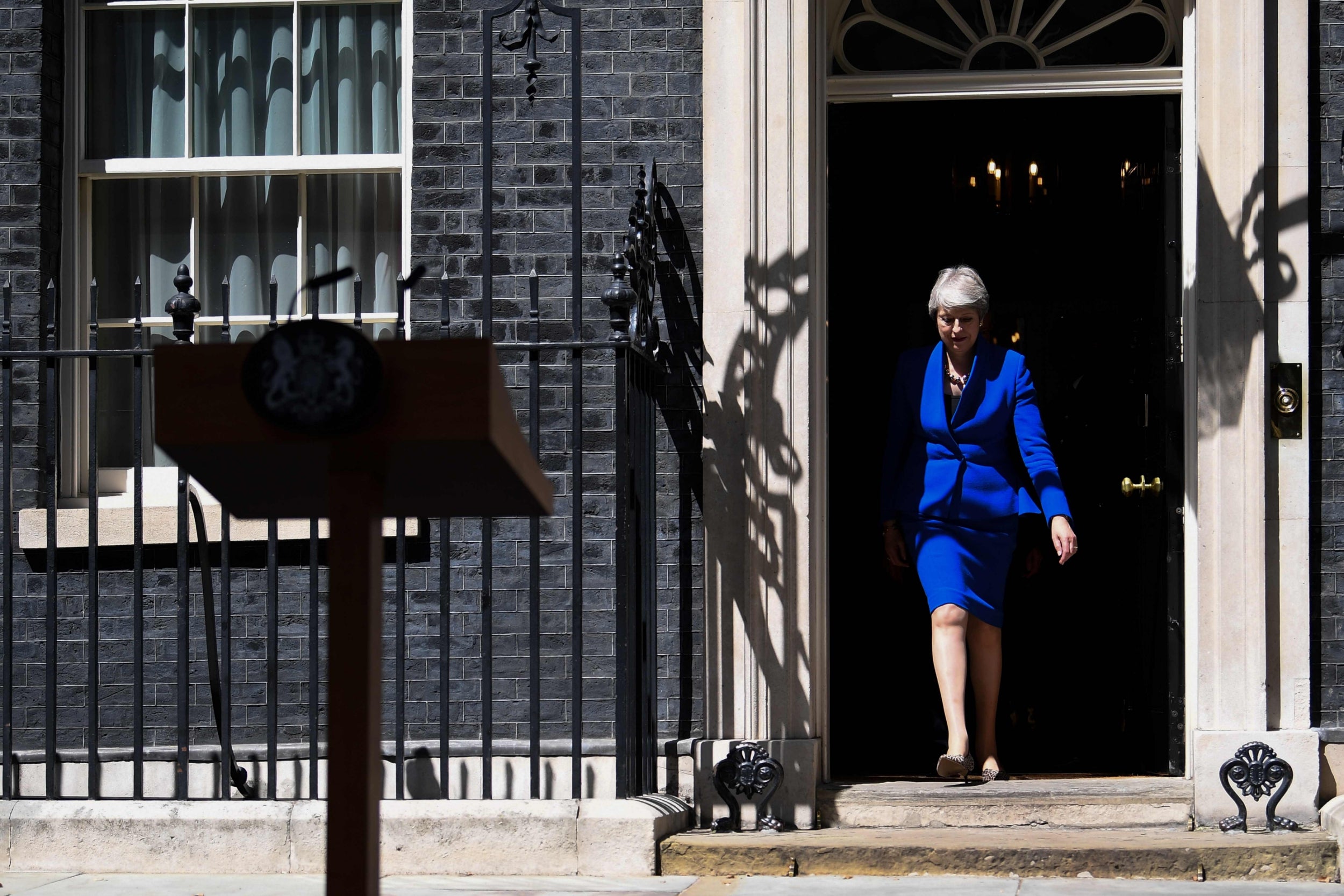Historian delivers a damning judgement on Theresa May
A new book about Boris Johnson’s predecessor considers if he should have become prime minister three years earlier, writes John Rentoul


It was only last summer that Theresa May choked back the tears and left Downing Street for the last time, yet already she seems a half-forgotten character from a different age.
Among the wave of new books about politics this autumn, a new edition of May at 10, by contemporary historian Anthony Seldon, is published next week. It’s a 700-page doorstopper that provides a full account of her three years, and it has been updated, including with a final chapter, “The Verdict”, which is also the subtitle on the front of the book.
In his introduction, Seldon says: “Some will think the judgements that follow are over-kind to Theresa May; others, that they are too harsh.” It turns out that there will not be many people in the first category – apart possibly from George Osborne, brutally sacked as chancellor when she became prime minister. Seldon’s “verdict” is overwhelmingly negative.
“May spectacularly lacked the communication skills and ability to project the authority of a leader,” he writes. “What the hour needed was a prime minister who could convince MPs to vote for the Brexit deal, and convince the country that it was the right way forward. May was not that leader.”
The case against May is all the more telling because Seldon and his co-author Raymond Newell are fair and thorough in their reporting, and systematic in their assessment of the qualities a prime minister needs. Seldon has written about the premierships of John Major, Tony Blair, Gordon Brown and David Cameron, in each case delivering a balanced judgement of their record – in particular giving Major more credit than he was generally allowed at the time.
So his damning of May on all the main tests of a modern prime minister is all the more cutting. She “made less impact on domestic and foreign policy than any other prime minister since 1945” – with the exceptions of Anthony Eden and Alec Douglas-Home, in office for 20 and 12 months respectively. Her electoral record was disastrous; and she failed on the one initial challenge she faced: Europe.
There is a photo at the start of the book of Boris Johnson watching May speaking during the 2017 election campaign, with the caption: “Boris Johnson thought he should have been prime minister in 2016 instead of May.”
It is hard to avoid the conclusion that he was right, and that if he had taken over then, those three years might not have been wasted. But it wasn’t May’s fault that she became prime minister: Johnson ducked the contest when he and Michael Gove fell out. For all her flaws, Theresa May did her best and did her duty.
Yours,
John Rentoul
Chief political commentator
Join our commenting forum
Join thought-provoking conversations, follow other Independent readers and see their replies
Comments